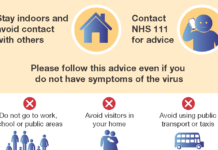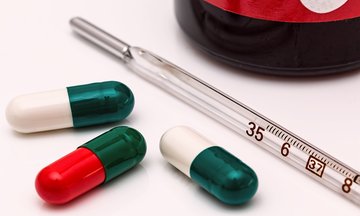Article date – 23 October 2018
Launched by Public Health England today (Tuesday 23 October), the ‘Keep Antibiotics Working’ campaign looks to raise awareness of the issue of antibiotic resistance and reducing demand from the public.
Antibiotics are essential to treat serious bacterial infections, such as meningitis, pneumonia and sepsis, but they are frequently being used to treat illnesses like coughs, earache and sore throats that can often get better by themselves.
Taking antibiotics encourages harmful bacteria that live inside you to become resistant, meaning antibiotics may not work when you really need them too.
It is estimated that 5,000 deaths are caused every year in England because antibiotics no longer work for some infections and this figure is set to rise with experts predicting that in just over 30 years antibiotic resistance will kill more people than cancer and diabetes combined.
Aimed at women aged 20-45 and men and women aged 50 and over, the campaign urges residents to always trust their doctor, nurse or pharmacist’s advice as to when they need antibiotics and if they are prescribed them, take antibiotics as directed and never save them for later use or share them with others.
The campaign also provides effective self-care advice to help individuals and their families feel better without prescribed antibiotics.
Dr Mike Ejuoneatse, NHS St Helens CCG Lead GP, said:
“As a region, we have the highest rate of antibiotic use and though they are needed for serious bacterial infections they don’t work for everyday viral infections such as cold and flu.
“Many people ask their GP for antibiotics when they aren’t needed. If you take antibiotics when you don’t need them, the dangerous bacteria inside you can become resistant to antibiotics. “This means they are less likely to work for you when you really need them.
“I would urge everyone to take the advice or their doctor or nurse.”
St Helens Council’s Director of Public Health, Sue Forster, added:
“Antibiotic resistance is a threat to our health care system both in the UK and worldwide. If bacteria become ‘resistant’ to our antibiotics, many routine treatments will again become increasingly dangerous.
“This could be as simple as setting broken bones, basic operations, even cancer treatments. So I am urging everyone to take their doctors or nurses advice about taking antibiotics.”
For further information on antibiotics, their uses and the risk of resistance, please search ‘antibiotics’ online at www.nhs.uk or to show your support become an antibiotic guardian today at www.antibioticguardian.com

















